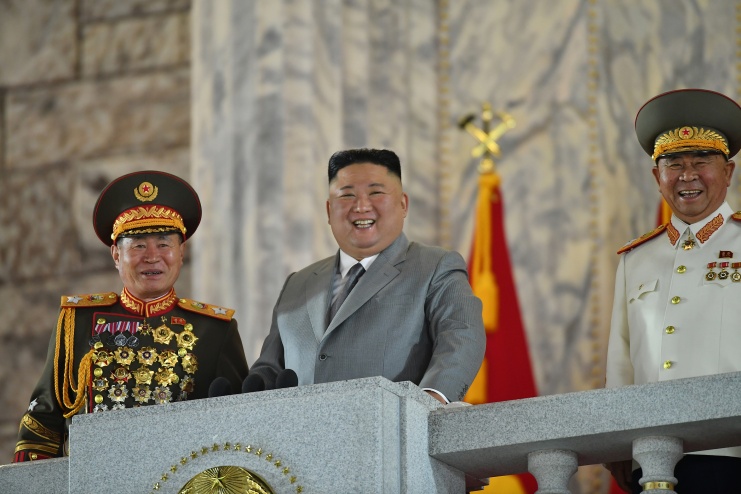It is becoming more and more clear who the Biden administration is choosing to fill its diplomatic posts. The diplomatic lineup includes hardliners who have dealt with North Korean policy in the past and are intimately familiar with the nature of the North Korean regime. This will likely create friction with South Korea’s appeasement policy toward North Korea.
The new US administration officially announced the outlines of its North Korea policy for the first time on Jan. 22. Jen Psaki, the White House press secretary, stated that the US “still has a vital interest in deterring North Korea” and that they will “adopt a new strategy.” The comments expressed the new administration’s willingness not to repeat the Trump era’s mistakes. The comments showed the Biden administration’s desire to diverge policy-wise from its predecessor, not only in its approach to the denuclearization issue but also in its overall policy toward North Korea.
Biden’s policy toward North Korea is likely to comprehensively deal with the denuclearization issue and other issues such as that of North Korean human rights. Biden has nominated many candidates to senior positions in the State Department who have managed North Korea policy in past administrations.
Secretary of State Anthony Blinken, who served as longtime diplomacy and security advisor to President Biden, stated on Jan. 20 his intention to review all North Korea-related policies, adding that he will focus equally on “security and humanitarian aspects.” His comments expressed the new administration’s intent to focus on the human rights problems faced by the North Korean people, something that the Trump administration had neglected.

Wendy Sherman, the deputy secretary of state, is as much of a hardliner toward North Korea as Blinken. As the Clinton administration’s policy coordinator for North Korea, she argued the need for tough sanctions to solve the North Korean nuclear issue, and was deeply involved with carrying out the policy of “strategic patience” as deputy secretary of state during Obama’s second term. In October 2000, she also met Kim Jong Il when she accompanied Secretary of State Albright on her visit to Pyongyang. These experiences likely allowed her to understand the human rights situation in North Korea.
The former US ambassador to South Korea, Sung Kim, was appointed as acting assistant secretary of state for East Asian and Pacific Affairs. His appointment also emphasizes the importance the new administration is placing on the North Korean human rights issue. In the past, Kim has stressed the need for a diplomatic resolution to the North Korean nuclear issue while simultaneously arguing for strengthening sanctions and resolving the human rights issue. Jake Sullivan, the White House’s national security advisor, along with Kurt Campbell, the administration’s “Asia Tsar,” also have hardline stances toward North Korea.
There is a high likelihood that if these advisors put pressure on North Korea while carrying out President Biden’s human rights and democracy-oriented policies, these policies will clash with South Korea’s so-called “Don’t Ask” policy of engagement with North Korea. During his New Year’s press conference on Jan. 18, President Moon Jae-in mentioned the possibility of inter-Korean cooperation projects in anticipation of a future Kim Jong Un visit to South Korea. Furthermore, arguing that Kim’s resolve for peace and denuclearization was clear, he misinterpreted North Korea’s plans regarding tactical nuclear weapons for use in an invasion of South Korea to reunify the peninsula by force, an intention put on full display by Kim during the recent Eighth Party Congress. While saying that the North Korean authorities want a clear reassurance from the US on regime security to normalize relations, Moon showed no aversion to being a spokesperson for Kim.
The North Korean human rights issue could become a stumbling block in improving US-ROK relations. The new Biden administration’s diplomatic and security officials will all emphasize the human rights issue. The denuclearization and human rights issues will be the two axes of the wheel that will propel Biden’s North Korea policy forward.

What about the South Korean perception of North Korean human rights? Moon, a former human rights lawyer, has remained thoroughly mute on the human rights issue facing the North Korean people, as he has contributed to the abolition of North Koreans’ awareness of freedom and human rights by banning anti-North Korean leaflets that bothered the Kim’s sister, and, at the UN, neglecting to mention anything of value regarding the adoption of South Korea’s North Korean Human Rights Law.
The gap between the US and South Korea’s overall perception of North Korea, including issues such as denuclearization and human rights, is the most important dividing line between the two countries. Previous cracks in the relationship experienced during the Kim Dae Jung and Roh Moo Hyun administrations may rear their heads again.
The US-South Korea relationship is a story of love and hate. If it were a person, it would be celebrating its 70th birthday. While the past 68 years of the US-South Korean relationship have sometimes seen good days, there have also been crises edging it close to the brink of divorce. Crises that could have led to divorce have occurred frequently in the relationship’s twilight years, particularly with the advent of progressive governments in South Korea from the 2000s. The cause of this discord has centered around perceptions of North Korea and the resulting differences in the policies of the two countries toward North Korea.
Even if the North Korean authorities have been vague about their intentions to denuclearize in the past, that North Korea showed off the fact it possesses nuclear weapons, and the threat posed by these weapons put on display at the Eighth Party Congress, demonstrate that there is no room for repeating past discrepancies in the two countries’ policies on North Korea. The US and South Korean governments should work closely together to ensure that democracy and awareness of human rights can take root in North Korea. In their policies on North Korea, genuine cooperation is required.
*Translated by Vilde Olaussen




















